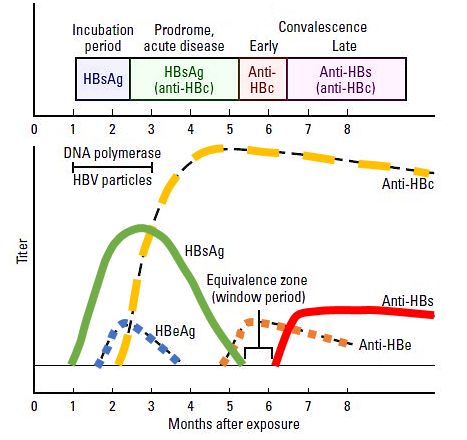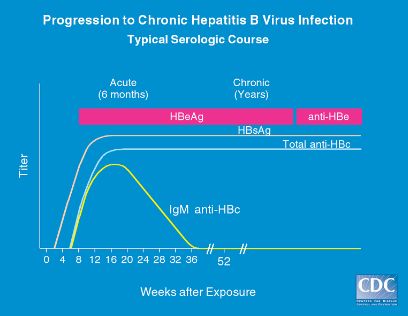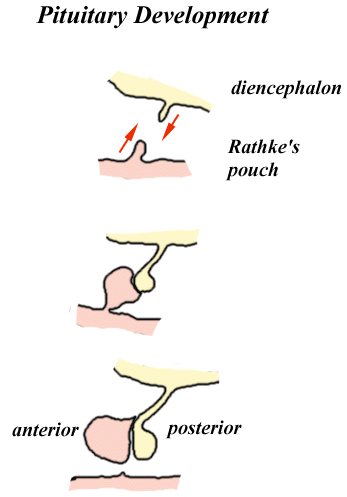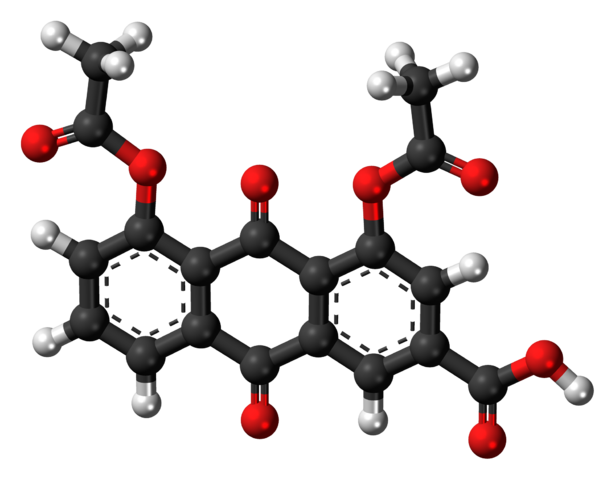Hepatitis B surface antigen (HBsAg)
- Appears during incubation period (1-6 months), 2-7 weeks prior to symptoms.
- Peaks when the patient is most ill.
- Becomes undetectable in 3-6 months.
- Indicates infection – recent or chronic.
Hepatitis B surface antibody (anti-HBs or HBsAb)
- Arises once the acute disease has resolved.
- Sometimes, not detectable unless until weeks or months after HBsAg has disappeared. This gap is called “window” period.
- Indicates, immunity (by vaccination or infection).
Hepatitis B core antibody (anti-HBc or HBcAb)
- Anti-HBc IgM and elevated serum transaminases also appear shortly before the symptom onset.
- Over the next few months, anti-HBc IgM is replaced with an IgG component.
- IgM = Recent (Acute) infection
- IgG = Chronic infection
Hepatitis B e-antigen (HBeAg)
- Shortly after HBsAg appears, HBeAg and HBV DNA can be detected in the serum and are markers of the acute viral replication.
- Predictor of infectivity.
Hepatitis B e-antibody (anti-HBe or HBeAb)
- Anti-HBe appears shortly after HBeAg vanishes and indicates subsiding viral activity.
- Predictor of low infectivity.


| HBsAg | Anti-HBs | Anti-HBc | HBeAg | Anti-HBe | |
| Never infected (susceptible) | – | – | – | – | – |
| Incubation period | + (1st to appear) | – | IgM (shortly before symptom onset) | + | – |
| Prodrome, Acute disease | + | – | IgM | + | +/- |
| Window period | – | – | IgM | +/- | +/- |
| Convalescence (Recovery) | – | + | IgG | – | +/- |
| Chronic active hepatitis B | + | – | IgG | + | – |
| Chronic non-active hepatitis B | + | – | IgG | – | + |
| Immune due to Vaccination | – | + | – | – | – |
| Immune due to Natural infection | – | + | IgG | – | +/- |
| False positive or infection in remote past | – | – | IgG | – | – |



Dear admin
I want to ask anti-hbs is 76.61.csbt/ is high or low. Many thanks.
My sister almost died of CHRONIC HEPATITIS B, she suffered rips pain, swollen stomach, tiredness, headache and more as symptoms of the ailment. The hospital said her liver was in danger and they couldn’t help, and out of frustration I went online looking for solution to help my sister, and I came across Dr. Iyabiye’s herbal recommendation, I contacted him and explain in details the medical condition of my sister. I order for the medication and the pains was gone, she was totally cured after the herbal treatment. So, I came back here to testify of his herbal medication. Doctor’s contact: (Whatsapp: +2348072229413 call:+2348158577300) email: [email protected]